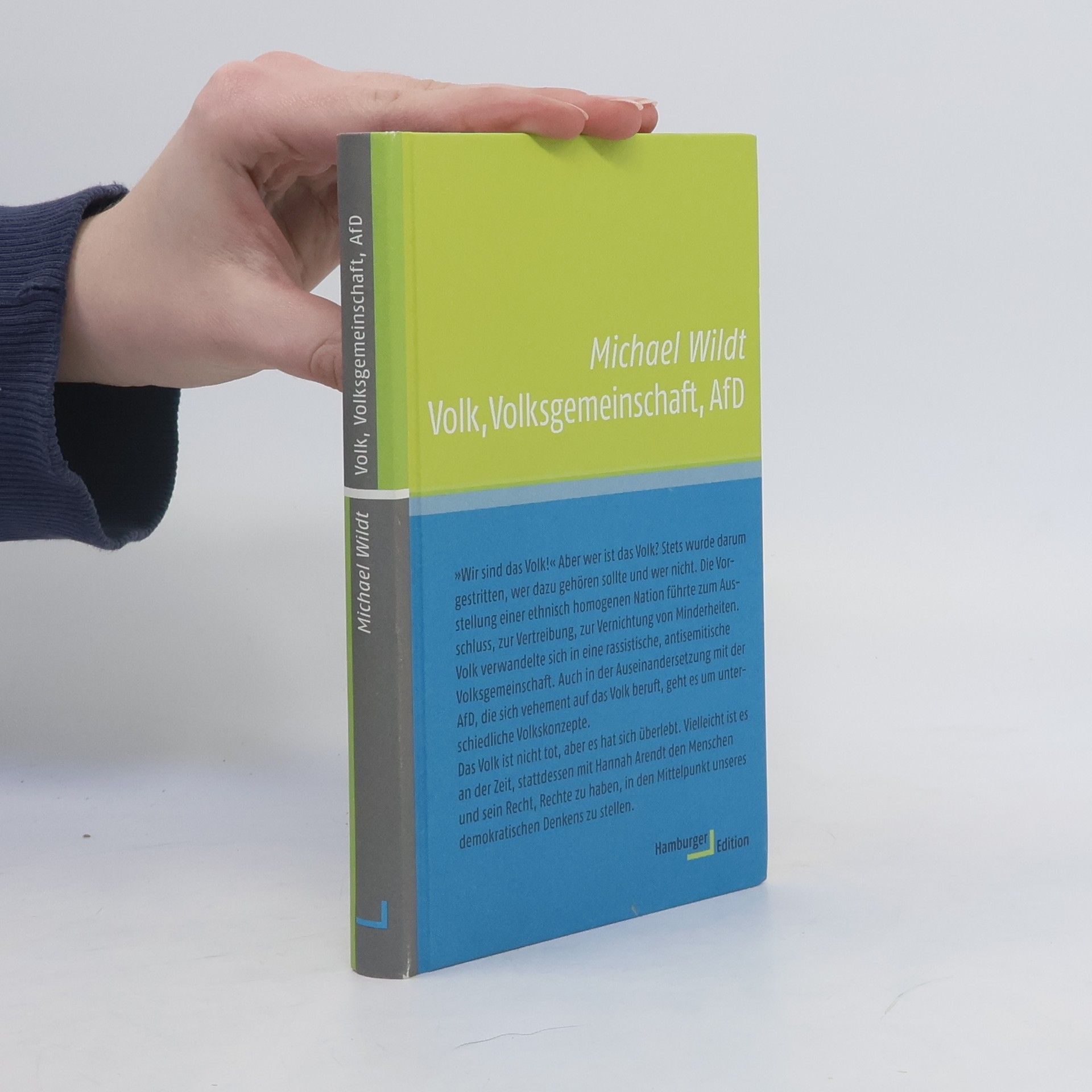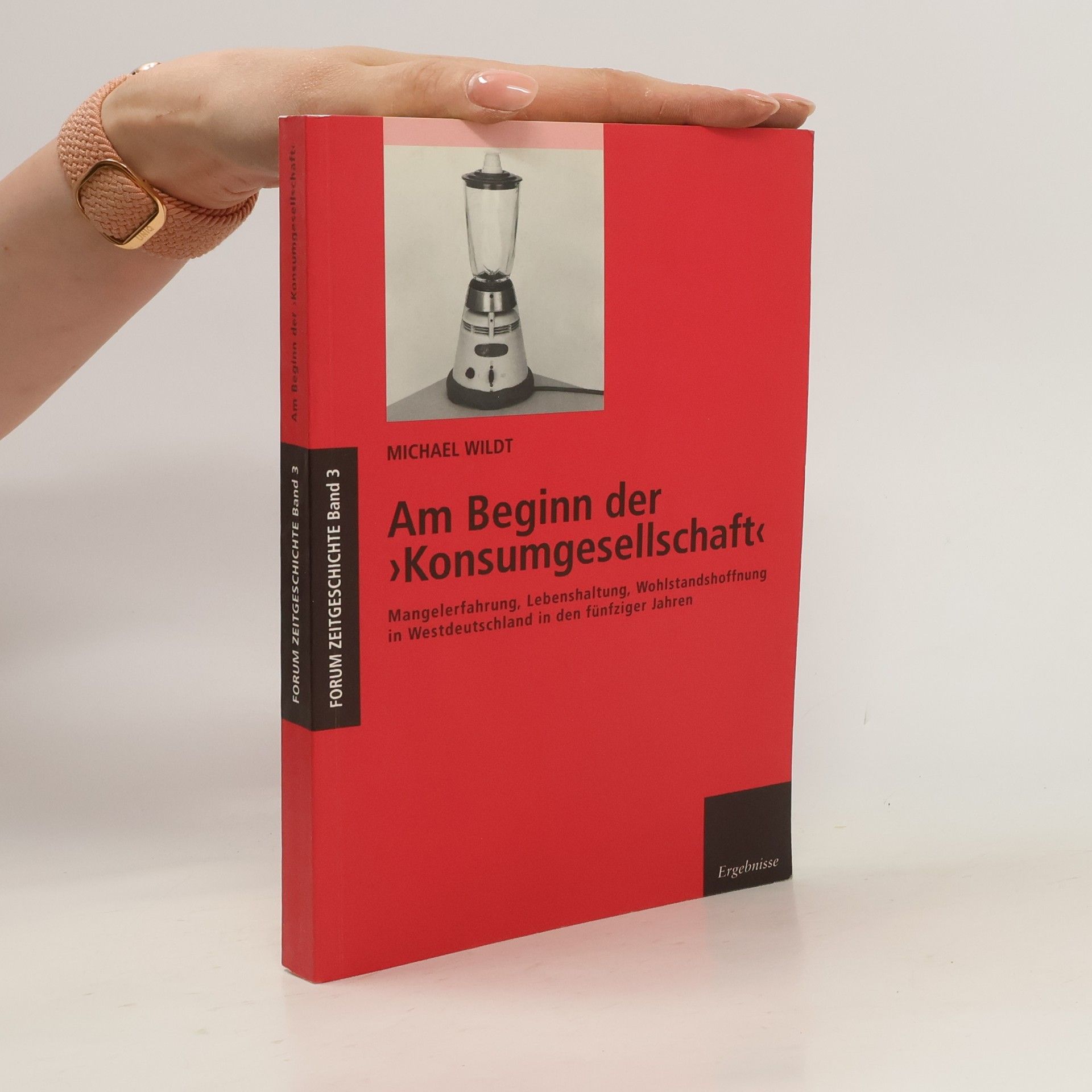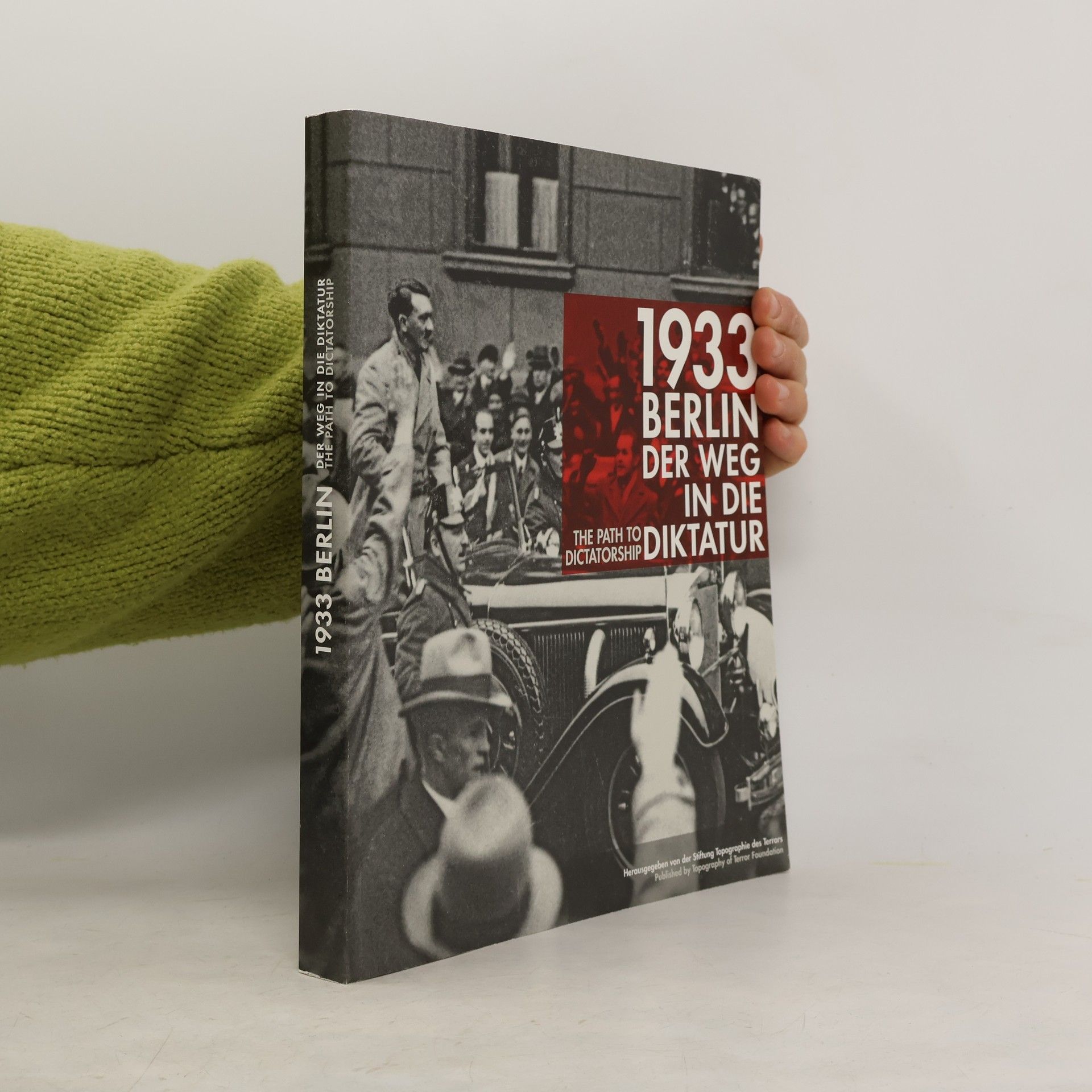Michael Wildt Book order (chronological)







Zerborstene Zeit
Deutsche Geschichte 1918 bis 1945
Deutschland zwischen 1918 und 1945 ist ein Zeitraum, in dem für Millionen Menschen zweimal eine "neue Zeit" beginnt: nach dem Ersten Weltkrieg 1918 und mit Hitlers Machtübernahme 1933. Michael Wildt schildert diese "zerborstene Zeit" in einer atmosphärisch dichten Darstellung, die die großen historischen Ereignisse mit den Erfahrungen der Zeitgenossen verknüpft. Er nimmt uns mit zu verschiedenen Orten, wie den Straßen Berlins während der Novemberrevolution, dem Ruhrgebiet 1923 während des französischen Einmarsches, Varieté-Shows, der schwarzen Community in Deutschland, Lemberg 1941 und Hamburg beim Bombenangriff 1944. Wildts Werk wird als grandios beschrieben und hebt hervor, dass es nicht um ein glattes Narrativ geht, sondern um die Empfindungen und Erfahrungen der Menschen – eine "Geschichte von unten" in ihrer besten Form. Während viele Historiker Kontinuitäten in der großen Politik suchen, wählt Wildt einen anderen Ansatz: Er erkundet dunkle Hinterhöfe und migrantische Gemeinschaften und beleuchtet das Wechselspiel von Oben und Unten im Zeitalter der Extreme.
Schulen handeln in der Klimakrise
¡Change School! Guidebook: Leitfaden für transformative Bildung
Gedächtnis aus den Quellen. Zur jüdischen Geschichte Berlins
Hermann Simon zu Ehren
- 230 pages
- 9 hours of reading
Die Ambivalenz des Volkes
Der Nationalsozialismus als Gesellschaftsgeschichte
Wer vom »Volk« redet, darf dessen Abgründe nicht verschweigen. Stets wird darum gekämpft, wer dazugehören darf und wer ausgeschlossen werden soll. Nicht nur Sprache und Geschichte, auch Abstammung und ethnische Zuschreibungen bestimmen über Inklusion und Exklusion. Im Nationalsozialismus nahm das Volk seine antisemitische und rassistische Gestalt an, Gewalt und Selbstermächtigung bildeten die zentralen Elemente. Der Begriff der Volksgemeinschaft ist daher ein Schlüsselbegriff für eine politische Theorie und Gesellschaftsgeschichte des Nationalsozialismus, deren Bausteine Michael Wildt in diesem Buch zusammenfügt.
Generace nekompromisních: Vedoucí pracovníci Hlavního říšského bezpečnostního úřadu
- 936 pages
- 33 hours of reading
Dne 27. září 1939 vznikl z Tajné státní policie, Kriminální policie a Bezpečnostní služby Hlavní říšský bezpečnostní úřad (Reichssicherheitshauptamt, RSHA), v jehož čele stál až do své smrti Reinhard Heydrich. Na vedoucích místech této instituce byli mladí, vysokoškolsky vzdělaní lidé, kteří se aktivně angažovali pro nacionálněsocialistickou myšlenku. Za tímto účelem často opustili slibnou kariéru svého oboru – nejednalo se tedy o ztroskotané existence, které by jinak nenalezly vhodné uplatnění. Práce těchto pracovníků RSHA se neomezovala na práci od psacího stolu, ale po vypuknutí druhé světové války se jako velitelé zásahových komand a jednotek v Polsku, Sovětském svazu a v Pobaltí aktivně podíleli na masovém vraždění Židů, Poláků a dalších skupin obyvatelstva, které byly podle nacistické ideologie považovány za nepřátele.
Wir sind das Volk. Die Anderen nicht. Der Historiker Michael Wildt über die Ambivalenzen und Abgründe des politischen Konzepts des Volkes. Wer ist das Volk? Die wahlberechtigten Staatsbürgerinnen und Staatsbürger? Die Demonstranten gegen die Diktatur in Leipzig im Oktober 1989? Die orangefarbenen Massen auf dem Maidan in Kiew 2013/14 ? In der langen Geschichte des Volkes wurde stets darum gestritten, wer zu ihm gehörte und wer nicht. Frauen zum Beispiel erhielten in den meisten Staaten erst im 20. Jahrhundert das Wahlrecht. Und was geschieht, wenn das Volk die Demokratie nicht mehr will? Michael Wildt hinterfragt die populistischen Äußerungen der AfD, die sich lauthals auf das Volk beruft. Auch hier geht es um verschiedene Volkskonzepte. Die kulturell definierte Ausgrenzung von Minderheiten bei der AfD birgt die Gefahr radikaler Exklusion aus dem »Volk«. Doch auch das Beharren darauf, dass Volk demos und nicht ethnos sei, gelangt über die tückische Imagination eines einheitlichen Volkes nicht hinaus.
Heinrich Himmler - Soukromá korespondence masového vraha (1927-1945)
- 344 pages
- 13 hours of reading
Ukázky z nedávno objevené korespondence manželů Himmlerových doplněné záznamy z kapesního kalendáře Heinricha Himmlera a z deníků jeho ženy a dcery. Zdánlivě nevinné dopisy mají výjimečnou historickou hodnotu a dávají nahlédnout do soukromého života druhého muže třetí říše. Projevuje se v nich neochvějné přesvědčení jednoho německého manželského páru, jenž si o sobě myslí, že se podílí na „veliké době“, a není schopen poznat, že se jedná o veliké zločiny. Dopisy ukazují Heinricha Himmlera jako manžela a otce rodiny i jako přesvědčeného antisemitu a aktivního nacistu. „Mně se i při tom množství práce vede moc dobře.“ Heinrich Himmler v červenci 1941 Marze Jakkoli tyto dopisy dnes mohou občas znít směšně, musí v nás jejich zdánlivě maloměšťácká normálnost v zásadě vzbuzovat strach. Z předmluvy Katrin Himmlerové a Michaela Wildta





